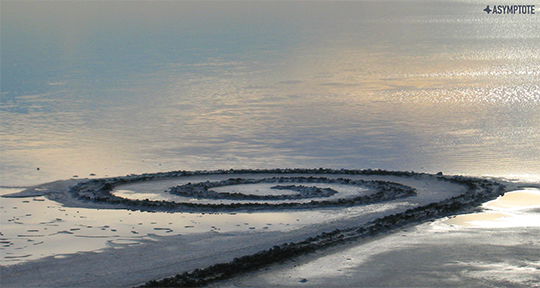In the following essay, Elisa Sotgiu considers the latest fiction series by Karl Ove Knausgaard, a Norwegian novelist who rose to global fame for his groundbreaking and controversial autobiographical saga My Struggle. Below, Sotgiu examines Knausgaard’s positioning in the literary canon, the critical reception of his novels, and the warped reflection of our world lurking beneath the characteristic mundanity of his oeuvre.
Like all famous authors of the past half century or so, Karl Ove Knausgaard is routinely asked about his creative process. He always replies with characteristic understatement, maintaining that he hardly knows what he’s doing when he sits down to write. He has no plan to speak of and does not make drafts or even sketch a plot; he simply starts with a rough idea of a situation or a character and follows it until it develops into something interesting. To be sure, the method is not conducive to brevity, and since as a rule he does not delete or substantially revise anything, his books tend to leaven into multi-volume series. His new cycle of novels, which started with The Morning Star (published as Morgenstjernen in Norway in 2020, and in English translation in 2021), was supposed to be a trilogy, but as of October 2024 five lengthy volumes have already been completed, with one more in the making.
It is probably this reckless expansiveness, however, that lends Knausgaard’s writing its inherent curiosity, its compelling tension. Anything can happen at any moment on the page; both reader and author are figuring it out together. In a literary world where novels are published on the basis of their polished pitches and synopses, Knausgaard’s liberty to send three pages a day of an undefined project to his editor (Geir Gulliksen at Forlaget Oktober) and have them published as they are is nothing short of miraculous. The resulting impression of open-endedness and unfiltered immediacy prompted some, at the time when Knausgaard’s autobiographical series My Struggle (Min kamp, 2009-2011, translated into the English by Don Bartlett in 2012) was galvanizing United States American and United Kingdom writers of autofiction to declare that the author’s humdrum confessional style was the literary counterpart of social media exposure. Similarly, the sprouting and shifting form of the Morning Star cycle could be considered apt to the era of ever-growing, unmediated Wattpad novels, more so than all the conventional stories that have been plucked from self-publishing platforms, neatly packaged, and endowed with an ISBN.
Knausgaard’s books are original, even ground-breaking, but they do not appear so at first. In fact, it is when Knausgaard becomes aware of their potential novelty, and embraces it, that the best outcomes are achieved. This is what happened in Book Two of My Struggle, when Knausgaard realized that he was not writing a novel with a beginning, climax, and ending, and decided instead to devise his own formal rules. And it has happened again with the third volume of his new series, titled Det tredje riket and now published in Martin Aitken’s English translation as The Third Realm by Penguin Press. What Knausgaard has recognized in The Third Realm is that something unexpected has emerged from his free flow of words. In the first interviews he gave after the publication of The Morning Star, Knausgaard had claimed that his initial idea for the novel was simply to have a gallery of different characters react to the presence of something unknown, a new star. But as in a psychoanalysis session, his unmeditated writing brought to the surface all the things that have been repressed in the polite republic of (global) letters. Within an international literary field where progressive social commentary is the prevalent mode of narration, Knausgaard conjures up hellish creatures, the after-world, religious horror, the politically sinister, and the Devil himself.

